Salon vom 02. Dezember 2022
Designing sensuous spaces
Double feature in English with Dr Victoria Bates and Dr Rebecka Fleetwood-Smith, Bristol/UK, and Jennifer Kanary Nikolov(a), Amsterdam/Niederlande
Dr. Jennifer Kanary (PhD) is founder of Roomforthoughts, an artistic research practice dedicated to understanding the physics of thought and how the brain constructs realities. Jennifer has a keen interest in understanding how art is a form of knowledge production that holds value for society, in particular in relation to our wellbeing. In her presentation, Jennifer will share „Labyrinth Psychotica. The Wearable“, a psychosis simulation VR project, and the subsequent follow-up project „The Anoiksis Experiment“.
The project ‚Sensing Spaces of Healthcare‘ rethinks hospitals through its focus on sensory experiences. Using approaches ranging from historical archival research to creative research methods, the project seeks to identify and address sensory challenges and opportunities within specific hospital environments in the British National Health Service. Sensory experiences can be difficult to articulate and explore, and this project harnesses the opportunities that creative approaches afford in exploring sensory encounters with hospital spaces. The project is led by Dr Victoria Bates, University of Bristol, and Dr Rebecka Fleetwood-Smith is the creative researcher on the project. In this talk we will outline the project, talk through some of its creative research methods, and offer the audience an informal opportunity to ‚try this at home‘!
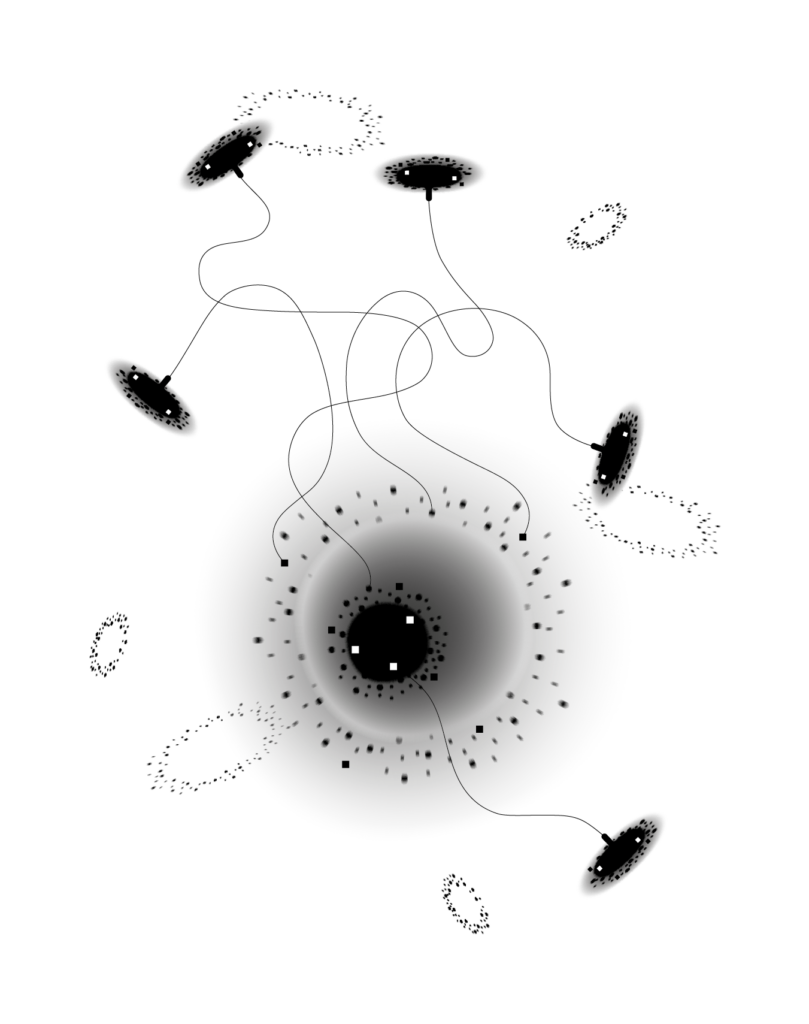
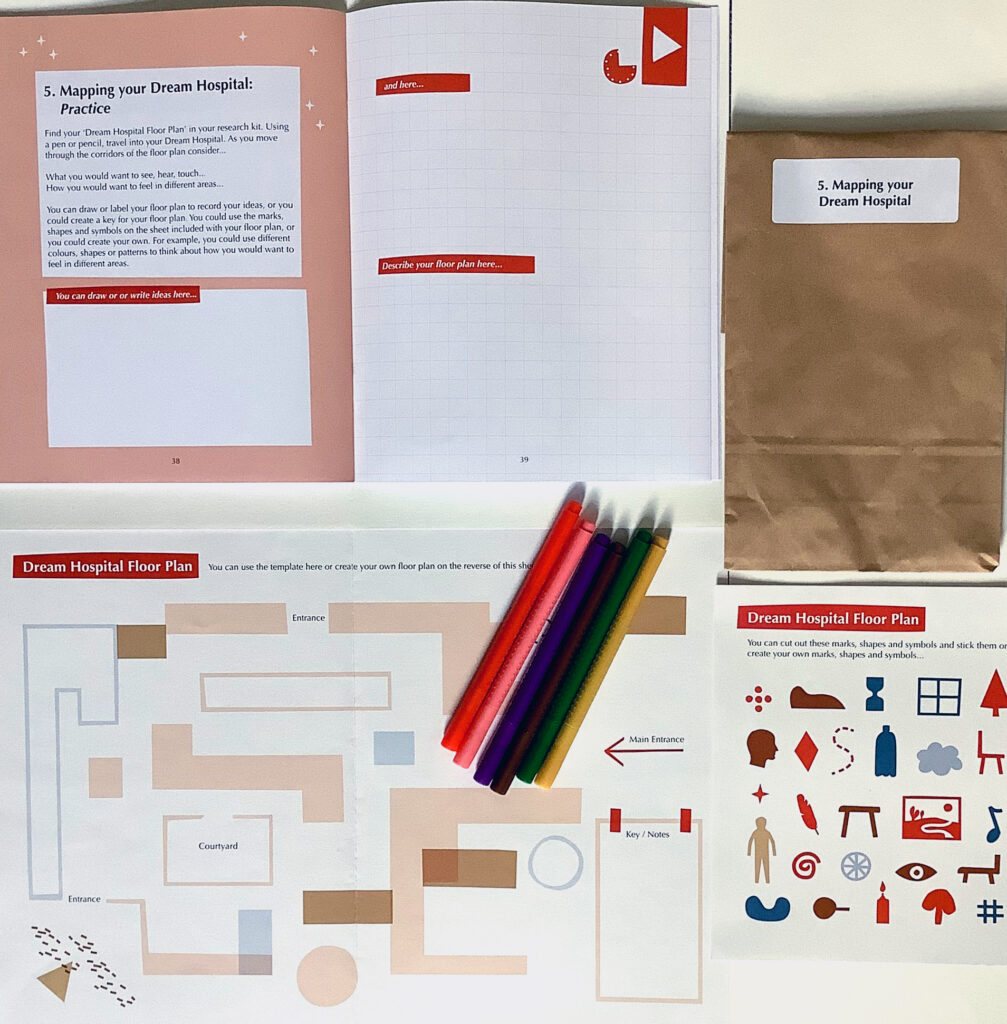
Salon vom 03. November 2022
Haptic visualisation
Double feature in englischer Sprache mit Dr. Stella Bolaki, Kent/UK, über „Artists‘ Books and Medical Humanities“ und Dr. Dr. Katharina Sabernig, Wien/Österreich, über „Knitted Body Materiality“
Katharina Sabernig is a medical doctor and anthropologist. She will present „Knitted Body Materiality“, a project supported by the Austrian Science Fond and based at the University of Applied Arts Vienna. Visualizing the interior of the body without evoking disgust is a challenge. However, experience has shown that knitted objects hardly provoke such revulsion because, unlike other forms of representation, they are perceived as pleasant and familiar. Anatomical structures one would otherwise be reluctant to look at, let alone touch, suddenly seem harmless and no longer threatening. The presentation will feature organs and pathologies – and we hope for lively discussions.
Project Homepage and Online-Exhibition
Stella Bolaki is a literary and medical humanities scholar. She will present „Artists‘ Books and Medical Humanities“, a project supported by the Wellcome Trust, that helped establish the „Prescriptions: Artists‘ Books“ special collection, based at the University of Kent in England. Unlike verbal and literary modes of representing health and illness that have been prioritised in the medical humanities, artists‘ books offer embodied and multisensory accounts of illness experience. Drawing on examples from the Prescriptions collection, this talk will showcase imaginative and authoritative works of illness that transform our understanding of how books, art and healthcare can be interrelated.
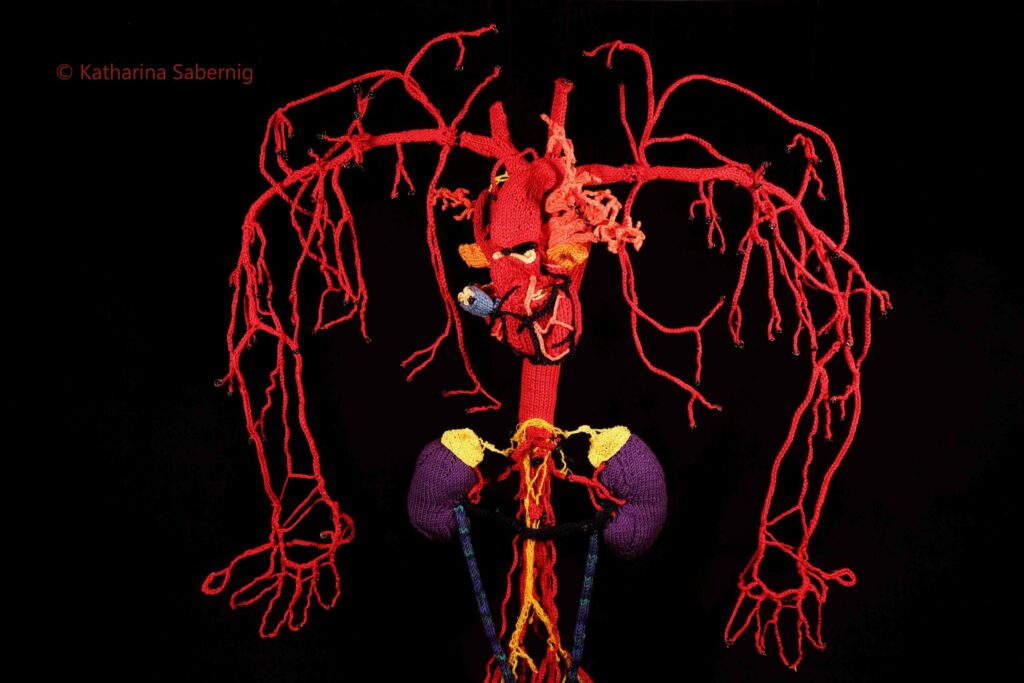
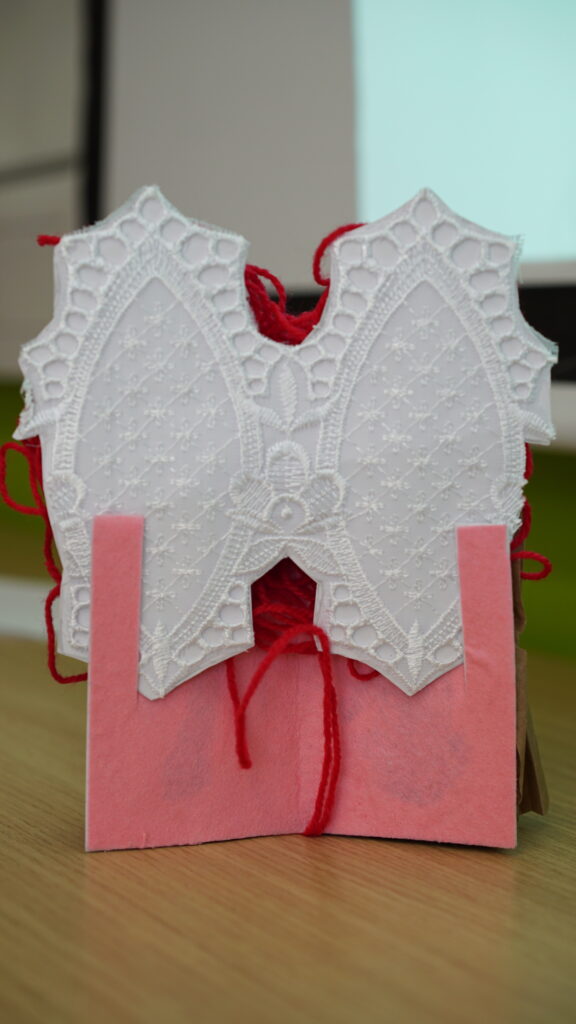
Kolloquium vom 06. Oktober 2022
Kolloquium vom 01. Juli 2022
Zu Gast: Elke Mark
Im unserem Kolloquium stellte die freischaffende Künstlerin Elke Mark ihre Arbeit vor. Mit den Schwerpunkten Performance Art und prozessualer (textiler) Objektkunst forscht sie zu sensorischem Wissen, Denken in Bewegung, Erinnerung, und Dialogkonzepten. Als Ausgangspunkte wählt sie das Tastsinnesvermögen und das spürende Erleben.
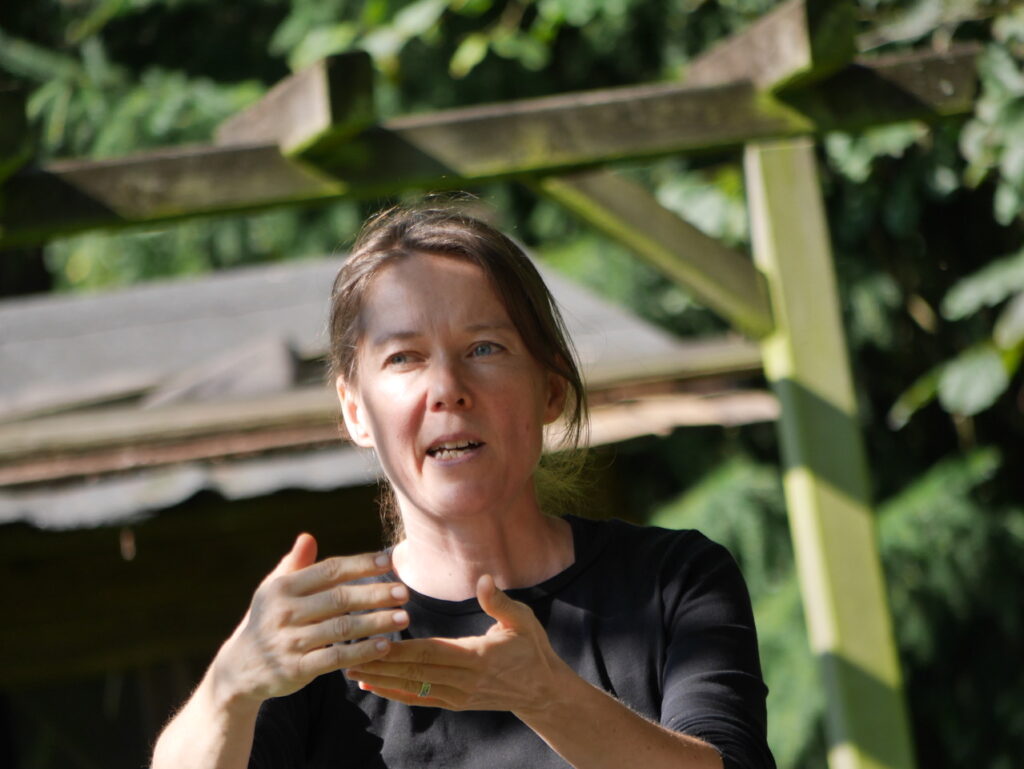
Salon vom 10. Juni 2022
Zu Gast: Barbara Graf
In unserem ersten Salon gab uns die Künstlerin Barbara Graf von der Universität für Angewandte Kunst in Wien Einblicke in ihre künstlerischen Forschungsprojekte. Infolge einer Diagnose mit Multipler Sklerose setzt sich Barbara Graf in ihrer „zeichnerischen Phänomenologie“ intensiv mit der Frage nach der Wahrnehmung und der Visualisierung von Schmerz auseinander. Dabei geht sie von ihrem eigenen physischen Erleben aus und versteht das Projekt gleichsam als „Verarbeitungsprozess der chronischen Erkrankung“ (vgl. Graf et al., Die subjek[ve Verarbeitung chronischer Symptome und Schmerz bei Menschen mit Multipler Sklerose: Visualisierung und Externalisierung als Ausdruck der Lebensqualität, Psychopraxis 2022).

Faltenlinien 8 – Fußbandage 1
(Mapping), 2016-2018
Reading Room vom 20. Mai 2022
Paul Crawford, „Health Humanities“
Eröffnungsfeier des An-Instituts
Am 25. März 2022 feierte die International Association for Medical & Health Humanities and Artistic Research, e.V., die Eröffnung ihres Forschungsinstituts und die Kooperation mit der Hochschule für Künste im Sozialen, Ottersberg, mit einer Reihe kurzer Vorträge und Präsentationen.
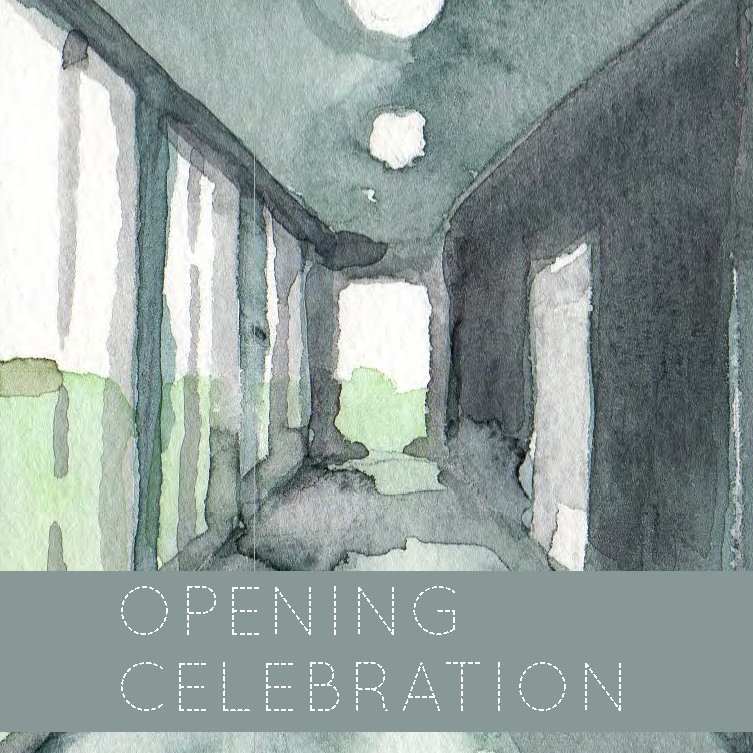
Kolloquium vom 14. Januar 2022
Martha L., geboren 1894 in St. Gallen, epileptiforme Anfälle, verzögerte Entwicklung, unverständliches Sprechen, aus der Anstalt für Schwachsinnige „als bildungsunfähig entlassen“, ab 1910 interniert im Kantonalen Asyl Wil, „unfügsam“, wegen „tierischem Gebrüll“ ins Dauerbad gebracht, kastriert zur Unterbindung „menstrueller Tobsuchtsanfälle“, heruntergerissene Verbände, eine zerschlagene Scheibe, in die Zwangsjacke gezwungen, gestorben 1918 an der Spanischen Grippe.
Martha L. ist die ältere Schwester meines Vaters. Er hat mir nie von ihr erzählt.
Meine Suche folgt der schmalen Spur der Klinikakte, befragt den Umgang mit „schwachsinnigen“ Kindern und unfügsamer Weiblichkeit und sie nähert sich dem Schweigen meiner Familie.
Projektvorstellung von Dr. Dorothee Kohler, Zürich
